What is the difference between “whether” and “weather?” And “wether?” Just as the spelling of the two terms is different, they have distinct meanings in writing, too.
At first, it may seem confusing when to use these phrases. However, once you understand their definitions, you will be able to use these terms in everyday and academic writing seamlessly.
What does the noun “weather” mean?
The noun “weather” is commonly defined as the state of the atmosphere at a specific place and time. Further, the meaning of the word “weather” also refers to the atmosphere in terms of dryness, heat, sunshine, wind, rain, etc.
Essentially, all things related to the outdoor climate, like a storm, rainy weather, temperature, etc., are all things the word refers to.
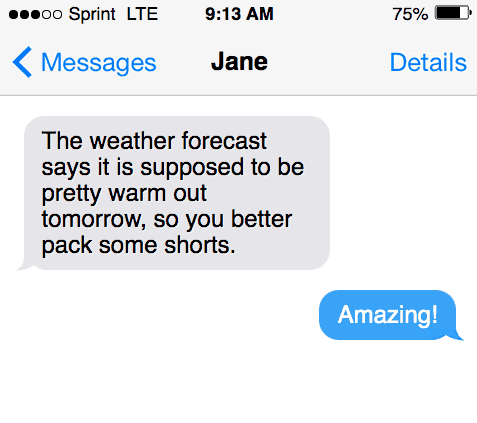
What does the verb “weather” mean?
What confuses some people is that weather can act as a verb in specific writing contexts. Used as a verb, it means to wear away and change the appearance or texture of something after being exposed to the air for a long time.
Another definition is to make it through a storm safely. Although the word is a noun and a verb, there are different meanings depending on how it gets used.
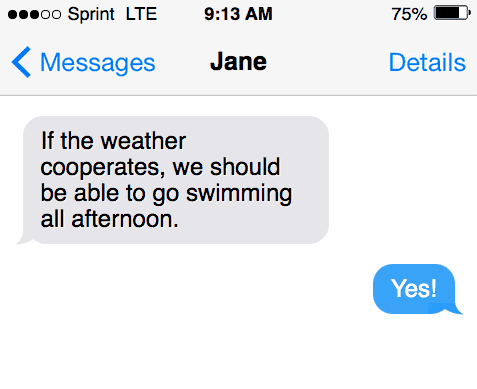
What does the word “whether” mean?
Although the words “weather” and “whether” sound the same, they have very different meanings.
Unlike “weather,” which serves as a noun and a verb, the word “whether” is used as a conjunction in writing.
“Whether” is used when expressing a choice between alternatives, an inquiry (usually with indirect questions), or to indicate that a statement applies to whichever of the alternatives mentioned is the case.
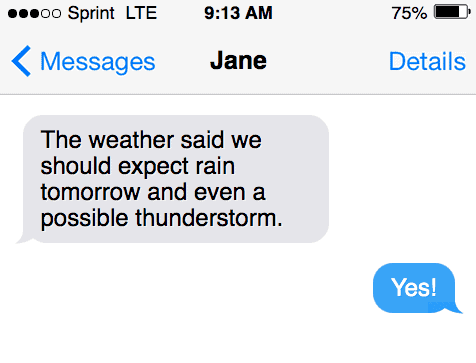
What does the word “wether” mean?
At first, wether looks like someone misspelled the word “whether.” However, “wether” has an entirely different definition (and spelling).
Put simply; a “wether” is a castrated goat, sheep, or ram. Further, a wether is a male goat or a male sheep that is castrated at a young age. Although you probably don’t use the word wether to refer to a neutered goat often, there is one word you may know that derives from wether.
Shepherds attached a bell to the lead sheep, called a bellwether.
Today, a bellwether describes any person who leads because the goat with the bellwether is the lead animal. Therefore, “wether” isn’t used to describe a castrated male sheep unless the context is in livestock.
Difference between the word weather and whether
The difference between the two words, weather vs. whether, is drastic.
As a noun, the term “weather” is derived from anything related to atmospheric conditions. So the state of the atmosphere, like if it’s sunny outside, is the “weather.”
The verb weather means to endure something or to be exposed to and affected by the atmosphere.
On the other hand, the term whether is a conjunction and its meaning are similar to “if.” In a sentence, “whether” often introduces the first alternative of a group.
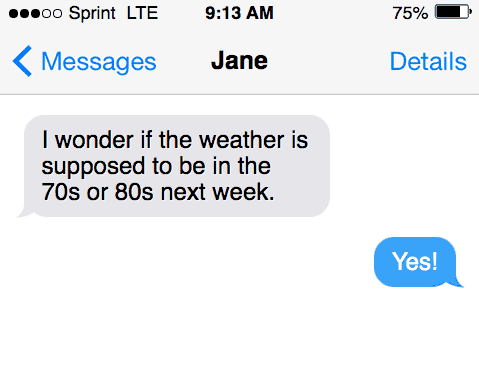
When to use “weather”
If you’re using the phrase in writing, it can be confusing to know when to use “weather” in a sentence.
Essentially, anytime you are referring to the conditions outside, you use the term weather. For example, if you want to describe the temperature outside, the wind chill, rainy conditions, etc., you will use “weather.”
If you want to use “weather” as an action word, it means to endure something challenging. It can refer to getting through bad weather, like a storm, or any other adversity, like a challenging math class.
When to use the word “whether”
Although “weather” and “whether” sound the same, each word has a different definition and proper time of use.
For the term “whether,” it is best to use it to reference a choice between alternatives (usually two choices). Remember, words like whether serve as a conjunction. Conjunctions are words that join sentences, clauses, phrases, or terms.
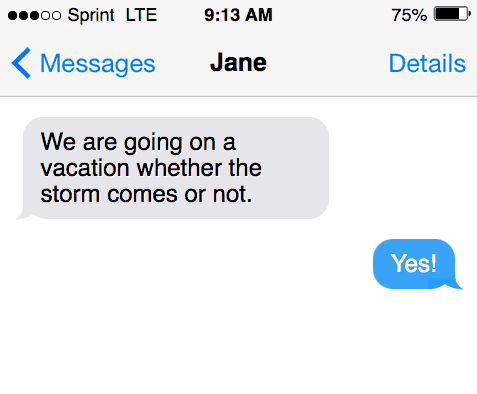
Examples of use: weather forecast
If you are still confused about how to use this term in a sentence, here are a few examples:
“The weather forecast says it is supposed to be pretty warm out tomorrow, so you better pack some shorts.”
“If the weather cooperates, we should be able to go swimming all afternoon.”
“The weather said we should expect rain tomorrow and even a possible thunderstorm.”
“I wonder if the weather is supposed to be in the 70s or 80s next week.”
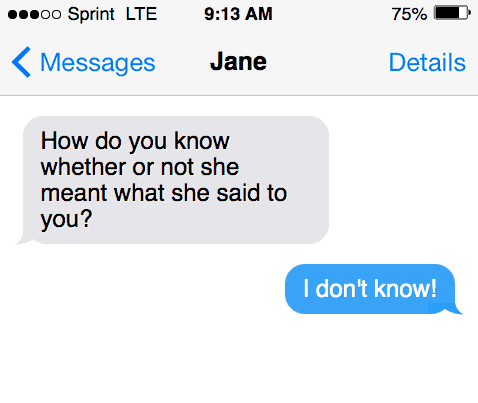
Examples of use: whether
Remember, “wether” and “whether” may seem like they have a similar meaning, but they do not. The phrase “wether weather“ and “whether weather“ can have two completely different meanings. So, you must know when to use each article.
If you have been searching for an example of “whether” is used in writing, here are some references to learn from:
“We are going on a vacation whether the storm comes or not.”
“She told me whether weather is good or bad we will practice outside today.”
“You’re going to be writing that essay whether you want to or not.”
“How do you know whether or not she meant what she said to you?”
How to know when to use “weather” vs. “whether”
There is a big difference between phrases using “weather” and “whether.”
In writing, you should use “weather” anytime you want to comment on the state of the atmosphere outside.
Also, it can describe someone or something enduring a considerable challenge or brutal outdoor conditions.
On the other hand, “whether” is a conjunction with a similar meaning as the term “if.”
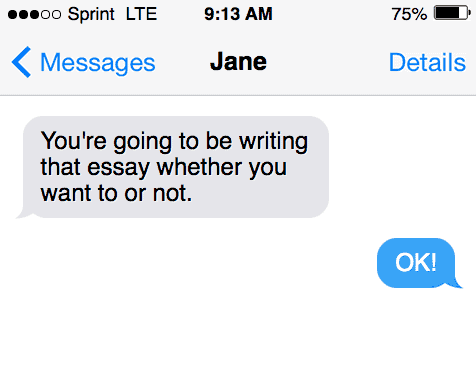
Sources
- Weather Definition & Meaning – Merriam-Webster
- Oxford Languages and Google – English
- Wether, Weather, Whether—What’s the Difference? – Grammarly
- Wether, Weather, or Whether: What’s the Difference?
- Wether – Definition, Meaning & Synonyms – Vocabulary.com
- Bellwether – Wikipedia
- ‘If’ vs. ‘Whether’: Similar But Different – Merriam-Webster
- weather vs. whether vs. wether : Choose Your Words
- What Are Action Words? – Definition & Examples – Study.com
- What Is a Wether Goat, and What Are the Benefits of Owning One?
Inside this article
Fact checked:
Content is rigorously reviewed by a team of qualified and experienced fact checkers. Fact checkers review articles for factual accuracy, relevance, and timeliness. Learn more.
Core lessons
Glossary
- Abstract Noun
- Accusative Case
- Anecdote
- Antonym
- Active Sentence
- Adverb
- Adjective
- Allegory
- Alliteration
- Adjective Clause
- Adjective Phrase
- Ampersand
- Anastrophe
- Adverbial Clause
- Appositive Phrase
- Clause
- Compound Adjective
- Complex Sentence
- Compound Words
- Compound Predicate
- Common Noun
- Comparative Adjective
- Comparative and Superlative
- Compound Noun
- Compound Subject
- Compound Sentence
- Copular Verb
- Collective Noun
- Colloquialism
- Conciseness
- Consonance
- Conditional
- Concrete Noun
- Conjunction
- Conjugation
- Conditional Sentence
- Comma Splice
- Correlative Conjunction
- Coordinating Conjunction
- Coordinate Adjective
- Cumulative Adjective
- Dative Case
- Determiner
- Declarative Sentence
- Declarative Statement
- Direct Object Pronoun
- Direct Object
- Diction
- Diphthong
- Dangling Modifier
- Demonstrative Pronoun
- Demonstrative Adjective
- Direct Characterization
- Definite Article
- Doublespeak
- False Dilemma Fallacy
- Future Perfect Progressive
- Future Simple
- Future Perfect Continuous
- Future Perfect
- First Conditional
- Irregular Adjective
- Irregular Verb
- Imperative Sentence
- Indefinite Article
- Intransitive Verb
- Introductory Phrase
- Indefinite Pronoun
- Indirect Characterization
- Interrogative Sentence
- Intensive Pronoun
- Inanimate Object
- Indefinite Tense
- Infinitive Phrase
- Interjection
- Intensifier
- Infinitive
- Indicative Mood
- Participle
- Parallelism
- Prepositional Phrase
- Past Simple Tense
- Past Continuous Tense
- Past Perfect Tense
- Past Progressive Tense
- Present Simple Tense
- Present Perfect Tense
- Personal Pronoun
- Personification
- Persuasive Writing
- Parallel Structure
- Phrasal Verb
- Predicate Adjective
- Predicate Nominative
- Phonetic Language
- Plural Noun
- Punctuation
- Punctuation Marks
- Preposition
- Preposition of Place
- Parts of Speech
- Possessive Adjective
- Possessive Determiner
- Possessive Case
- Possessive Noun
- Proper Adjective
- Proper Noun
- Present Participle
- Prefix
- Predicate



